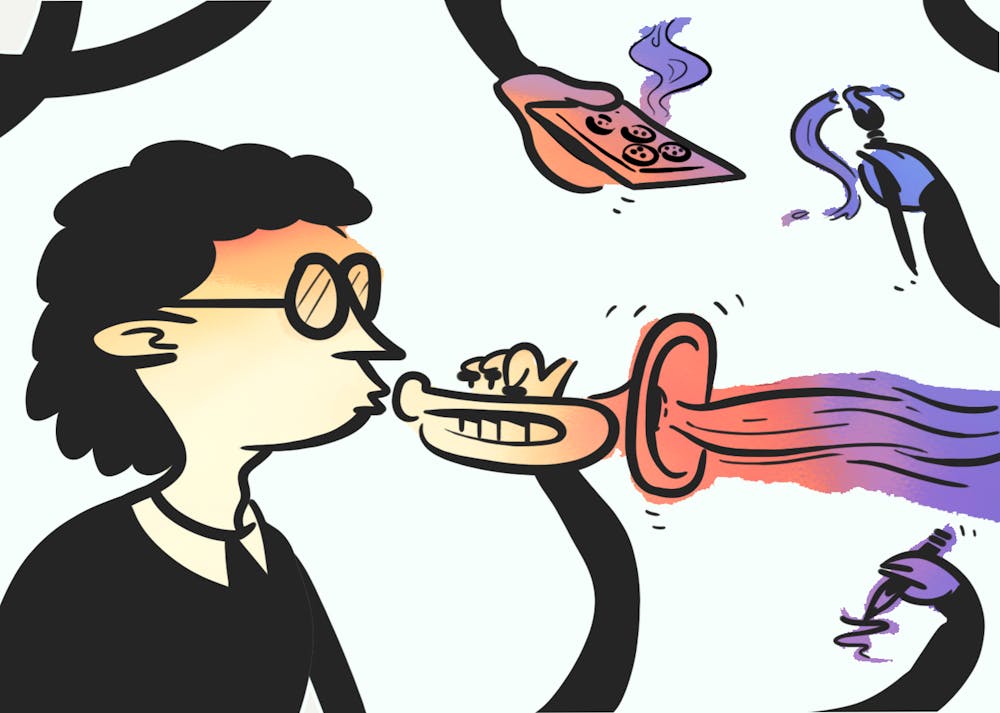When the pandemic initially halted much of public life and forced people to spend all of their time at home, the desire to not become robbed of our productivity led many to take up long lost or new hobbies and increase their now-virtual workload.
Newfound time had to be filled, we thought, either as a distraction to the chaos we inhabited or to sustain the notion that self-worth is derived from one's output.
Some companies have since accounted for the widespread nature of the virus and transitioned to a fully work-from-home structure indefinitely. But coupled with the presence of monitoring software that tracks anything from keystrokes to the amount of time spent working on a task, this work-from-home transition may merely have been a way for companies to save money while further blurring the line between home and work.
When work becomes home and vice versa — especially with the looming existence of technological managerialism — workers are trapped in the myth of hyper-productivity, resulting in longer work days, the intrusion of work-related tasks into personal time and the subsequent anxiety of underperforming.
Public schools and colleges followed suit similarly. Despite my gratefulness for not having to roll out of bed for early classes, ASU's integration of Zoom in mid-March seemed to amplify the need for self-teaching and diligent self-delegation to account for lost resources.
I have only seen this need for self-instruction grow greater during the fall semester, as the University has curtailed much needed breaks from classes, shortened the semester and purportedly made it harder to achieve academic success during this volatile period of time.
READ MORE: Students are just trying to get by
The number of people trying out new or old hobbies proliferated during these months as well. For some, the quasi-natural next step to commodify one's hobbies, only exacerbated by current economic precariousness, has imposed additional pressure to view our hobbies through the hazy lens of productivity.
"Do what you love, and you'll never work a day in your life," is what is peddled as golden advice for successfully navigating our ever-evolving gig economy. In the context of commodifying hobbies, it would seem natural that monetizing something that brings you joy would hardly ever feel like work.
But, as I and others know, attempting to monetize a beloved avocation spurs an alienated anxiety to ensure the legitimacy of the hobby through connecting substantial monetary value to it, which effectively robs the hobby of the sentimental or psychological value it held prior to operating within the framework of a market.
It would be more accurate to say that doing what you love feels like harder work, for mutating a diversion into a side job results in one having to self-delegate under self-imposed pressures. A worker who attaches measurements of productivity to leisure activities finds themself laboring to meet monetary goals for the hobby and pursuing an economically informed, fulfilled sense of self.
When workers have managed to commodify their avocation, they tacitly view their own self-worth in tandem with the success of their new business. Passion is critical in work to a certain degree, but passion is diminished when productivity and goals for output supplant the original sense of relaxation found in performing activities as leisure.
This idea that fulfillment is intrinsically connected to productivity, that hobbies are more valuable as mechanisms of financial return than as avenues to achieve joy, is highly flawed and highlights the seemingly imperishable linkage of time, space and money.
Thankfully, productivity is not synonymous with worth. This notion has been instilled in many, usually younger, people, but they face opposition from a slew of listicles guiding readers through curating a self-imposed schedule that maximizes productivity at the cost of seeking relief from a mentally corrosive pandemic through leisure.
It's not a crime to take up leisure activities without subsequently commodifying them, nor is it reprehensible to forego delving into a pastime in favor of watching television or relaxing in bed.
During this period of uncertainty, anxiety and fear, any time spent taking care of your own mental health is greatly needed, not just the time you spend engaging with the myth of hyper-productivity.
Reach the reporter at stellefs@asu.edu and follow @samtellefson on Twitter.
Like The State Press on Facebook and follow @statepress on Twitter.
Sam Ellefson is the Editor of State Press Magazine, leading a team of writers, editors and designers in creating four print issues each semester. Sam is a senior getting dual degrees in journalism and film studies and is pursuing an accelerated master's in mass communication at ASU.




